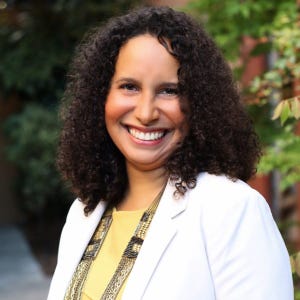UO Professor Alaí Reyes-Santos Collaborates with OEC to Elevate Water Justice
“A changing climate, aging infrastructure across the state, and lack of ongoing investment in clean water have left Oregon’s water systems stressed, putting our health, safety, economy and environment at risk. Communities of color, particularly those that are rural and low- income, are often on the front lines of these impacts, facing a wide range of threats, including rising utility rates, disparities in drought and flooding vulnerability, and exposure to nitrates, pesticides, and heavy metals. In some rural counties, Native peoples and communities of color represent 30–40 percent of the population, yet face significant barriers to participating in state policy and infrastructure discussions. In metropolitan areas such as Eugene, Salem, and Portland, low-income communities and communities of color find themselves at high risk for water insecurity and climate-related disasters as documented during wildfires and seasonal flooding events.” — Project Overview / Oregon Water Futures Project Report
September 27, 2021—In fall 2020 Alaí Reyes-Santos, a UO associate professor of indigenous, race and ethnic studies, along with others working collaboratively in the Oregon Water Futures Project, interviewed more than 100 people in Native, Black, Latinx, and migrant communities throughout Oregon, holding conversations with them about water challenges and culturally specific resiliency. They collected a range of stories that underscored the threats and impacts to Oregonians, particularly Native peoples and communities of color, of an aging water infrastructure, climate change, and lack of public investment in clean water. They found that many of the people they interviewed did not trust their drinking water, and that they often faced significant barriers in participating in policy discussions.
A synopsis of their findings, along with the full report, can be found at: https://oeconline.org/new-report-elevates-water-justice-in-oregon/. The project website holds relevant op-eds, interviews, and report summaries in four languages.
In a letter sent mid-September 2021, Prof. Reyes-Santos offers a gracious thank you to CLLAS and other UO units that supported her research on Oregon Water Futures. Starting out in 2019 as a collaborative effort with the Oregon Environmental Council (OEC), this project has since attracted “a historic 340 million dollar investment on water in the 2021 legislative session; with 1.5 million dedicated to engaging communities of color and other historically underserved communities in conversations about water in the state,” Reyes-Santos wrote.
CLLAS was among the first to provide seed funding for Prof. Reyes-Santos’s Oregon Water Futures Project, awarding her, along with the OEC, a CLLAS Faculty Collaboration Research Grant in 2019. Other UO funders include the Wayne Morse Center for Law and Politics, the Center for Environmental Futures, and the Vice-Provost Office for Research and Innovation. The collaborative later received funding from Meyer Memorial Trust, the Collins Foundation, and the Lazar Foundation. The Meyer grant was renewed and now includes a collaboration with UO’s School of Law’s Environmental and Natural Resources Law Center.

